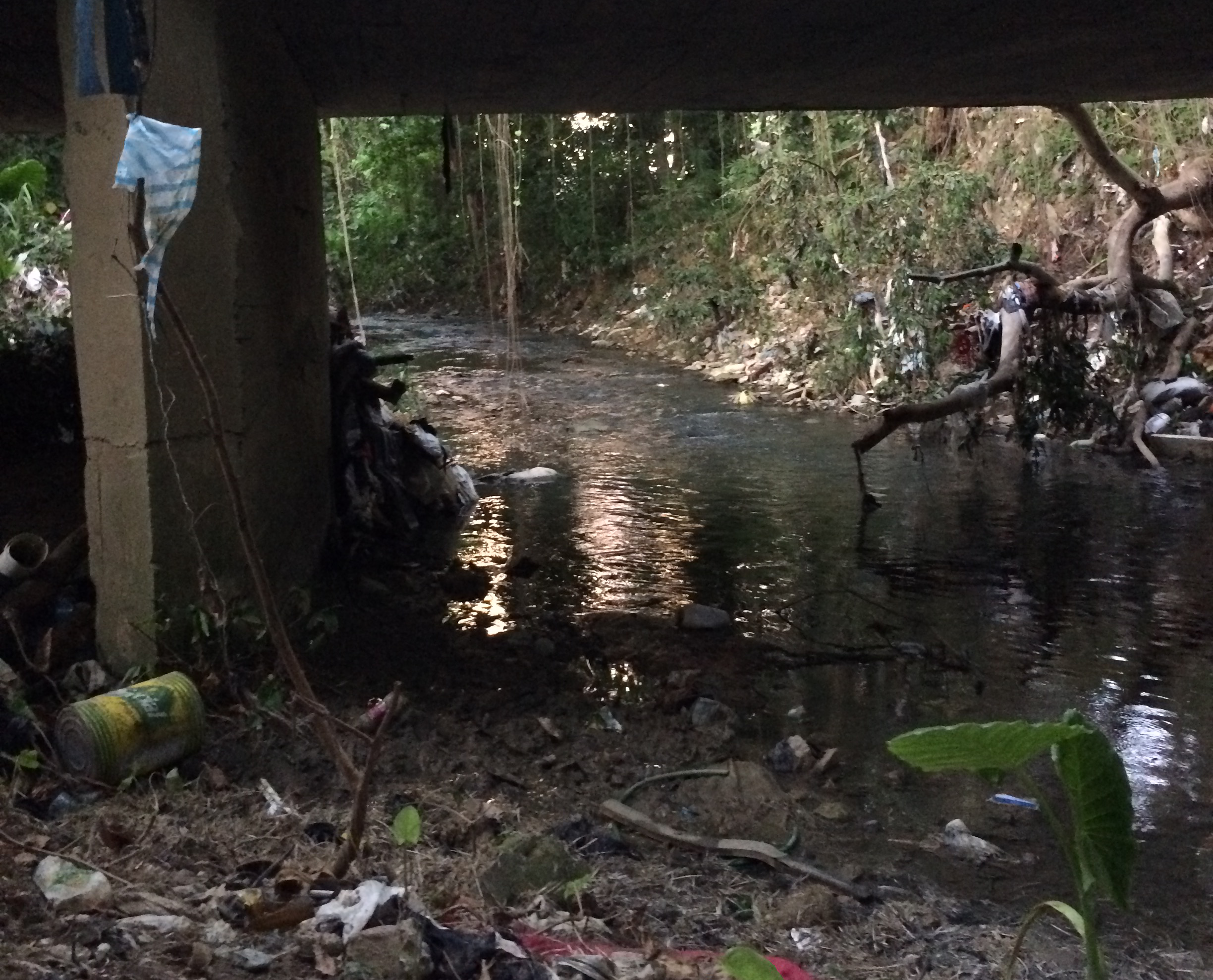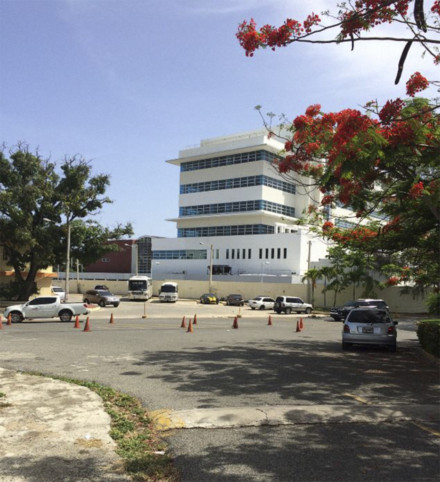13 October 2017
Santo Domingo, Dominican Republic
Yuniol Ramírez
Profession
Criminal Justice
Motive
Exposure of illegal activity
Whistleblowing


Adolfo Olivas


Ahmed Divela


Amit Jethwa


Artan Cuku


Babita Deokaran


Bayo Ohu


Berta Cáceres


Bhupendra Veera


Bill Kayong


Boris Nemtsov


Boško Buha


Chai Boonthonglek


Charl Kinnear


Chut Wutty


Chynybek Aliev


Cihan Hayirsevener


Daphne Caruana Galizia


Darío Fernández


Derk Wiersum


Deyda Hydara


Édgar Quintero


Edmore Ndou


Edwin Dagua


Federico Del Prete


Fernando Villavicencio


Gezahegn Gebremeskel


Gilles Cistac


Habibur Mondal


Igor Alexandrov


Jacob Juma


Ján Kuciak


Javier Valdez


Joannah Stutchbury


José Ángel Flores


Jules Koum Koum


Kem Ley


Luis Marroquín


Mahamudo Amurane


Marcelo Rivera


María Elena Ferral Hernández


Marielle Franco


Milan Pantić


Milan Vukelić


Muhammad Khan


Nelson García


Nihal Perera


Oliver Ivanović


Orel Sambrano


Perween Rahman


Peter R. de Vries


Rajendra Singh


Salim Kancil


Sandeep Sharma


Sikhosiphi Radebe


Slaviša Krunić


Soe Moe Tun


Victor Mabunda


Virgil Săhleanu


Wayne Lotter


Yuniol Ramírez


Zezico Guajajara
13 October 2017
Santo Domingo, Dominican Republic
Profession
Criminal Justice
Motive
Exposure of illegal activity
Whistleblowing
Late on a balmy Caribbean afternoon, in the Manoguayabo neighbourhood of Santo Domingo Oeste, police retrieved the submerged corpse of attorney and professor Yuniol Ramírez. Earlier the same day, 13 October 2017, the outspoken anti-corruption advocate had been kidnapped outside his office, driven to an unknown location and shot once in the face. His corpse was thrown into a tributary of the Río Haina, chained to a pair of cement blocks.
A visible social activist and president of the Dominican Republic lawyers’ association, Ramírez, 45, was killed for investigating corruption in the national bus company, the Oficina Metropolitana de Servicios de Autobuses, or OMSA. Before his murder, fares on OMSA buses had been increasing by over two and a half times the standard rate.
Three days after the killing, the police had issued 24 arrest warrants. Several OMSA leaders were then arrested and charged with extortion, embezzlement and conspiracy to commit murder.
The death of Ramírez reverberated across Santo Domingo and the entire country, sparking an outcry from lawyers, professors, and citizens. Overseas, the European Council of Bars and Law Societies, which represents more than a million European attorneys, wrote to Dominican Republic president, Danilo Medina, to demand ‘a full and impartial investigation’. At a press conference a few days after Ramírez’s death, prosecutor Olga Diná told reporters that OMSA assistant director Argenis Contreras and employee José Antonio Mercado had murdered Ramírez because the attorney had refused a RD$4 million (about US$76 000) bribe from OMSA director Manuel Antonio Rivas to end an inquiry into corruption practices in the transport company.
According to Diná, Rivas had told businessman Eddy Rafael Santana to pay Ramírez RD$1 million in exchange for not revealing evidence of corruption at OMSA. The payment would have been an advance on the full bribe intended to be paid to Ramírez.
On 17 October, authorities placed Rivas, OMSA financial director Faustino Rosario (who was also a senior officer in the country’s national police service) and Santana in pre-trial detention. Days later, Mercado, who, together with Contreras, had kidnapped Ramírez, was also arrested.
Many of Santo Domingo’s residents have their own Yuniol Ramírez stories. Three blocks from the city’s colonial zone, Raul, 27, described the attorney’s 5 a.m. jogs near the Playa Montesinos waterfront, which served an investigative rather than athletic purpose: ‘In the early mornings, child molesters used to go down to the beach,’ Raul said. ‘They would prey on the kids without families there or look for homeless children sleeping.’ According to Raul, Ramírez was doing surveillance while jogging – efforts that would later result in the arrest and conviction of several paedophiles.
Although many Dominicans emigrated to the United States, the country has become a migrant destination of its own. Since 2016, more than 30 000 Venezuelans have fled to the Dominican Republic following their country’s economic collapse. Before his death, Ramírez was part of a movement to protect the legal status of Venezuelan migrants by ensuring they could register for and receive residential documents upon arrival.
Ranzo Saavadra, 23, never met Ramírez but was just as affected by his reputation and life as those who had. Born in Acarigua, Venezuela, Ranzo moved to the Dominican Republic in 2016 as part of a recent wave of Venezuelan emigration. Although he once hoped to study criminal justice, Ranzo works at a Santo Domingo hotel. Each month, he coordinates with his brother, who migrated to Colombia, to send money back to their mother in Venezuela.
When asked about Ramírez, Ranzo’s face lit up with recognition and respect for a man whose legend was robust in life but has only grown in death. For Ranzo, the myth of Ramírez was not for his titles – influential lawyer; college professor; community leader – but because of what his sacrifices said about who he cared for. ‘Rich people don’t take the bus,’ Ranzo said, highlighting the reverence he felt for an influential man who died confronting a public transportation racket that preyed upon the poor.
That reverence was also apparent in a law student who was with Ramírez the day he died. ‘We were meeting in his office when he received a call. He walked down to the parking lot. Several people I did not know were there,’ said the student, who prefers to remain anonymous because investigators have interviewed her multiple times and she fears her safety would be threatened if her identity were to be made public. The student was aware of OMSA’s attempts to bribe Ramírez, and assumed the conversation was related to the issue. ‘They spoke to him and then he got into a blue van.’ No shots were heard and, according to the student, Ramírez did not struggle.

The river where Ramírez's corpse was found.

The parking lot where he had been kidnapped.
In April 2018, six months after the murder, Contreras, who, prosecutors say, planned the assassination and shot Ramírez in the vehicle, was arrested in New Jersey by United States authorities, where he was in hiding with associates from the Dominican community. The same day, the assassin’s wife, Heidi Peña, was arrested in Santo Domingo as a co-conspirator. Contreras, whose asylum petition filed with American authorities was rejected in October 2018, has appealed the ruling, and remains incarcerated in the United States. If his appeal fails, Contreras will be extradited to the Dominican Republic and charged with murder.
‘The omission of truth legitimizes the lie,’ Yuniol Ramírez had proclaimed in his single-sentence Twitter biography. At the Autonomous University of Santo Domingo, where Ramírez was a professor, his likeness remains a fixture at informational booths for FAPROUASD, the university’s association of professors, with whom he lobbied for increased teacher pay. The FAPROUASD community, which declared three days of mourning after the murder, upholds Ramírez as a martyr for the university and the association’s ideals. In June 2018, to honour Ramírez’s memory – and possibly to thwart any lingering questions about his own associations with the bus corruption – President Medina awarded the union’s teachers a five per cent pay increase.
Ramírez died because he had led an investigation that threatened the underpinnings of a criminal network that used political power to exploit millions of the Dominican Republic’s citizens and residents each day. After the arrest of the OMSA directors, bus fares returned to the ordinary price. Although Ramírez had sought to break a corrupt system through the rule of law, it took his murder for him to succeed in doing so. The OMSA conspirators responsible for the extortion scheme are jailed indefinitely. And, for the foreseeable future, the country’s bus fares are likely to remain unchanged.
September 2022 update:
In September 2022, a Dominican court sentenced Contreras to 20 years, finding him guilty of Ramírez’s murder. The court also sentenced Faustino Rosario to one year in prison for complicity in bribery, illicit enrichment and money laundering. OMSA director Manuel Antonio Rivas was acquitted.
February 2024 update:
In February 2024, the Second Criminal Chamber of the National Court of Appeals overturned Contreras’ 20-year prison sentence and ordered a new trial for him and his co-defendants, Lilian Francisca Suárez, Víctor Ravelo Campos and José Antonio Mercado. The prosecution alleges that Contreras was the main perpetrator of Ramírez’s kidnapping and murder.
The court ruled that the evidence should be re-evaluated and that a court of first instance should have jurisdiction to hear the case. Despite this setback, the court’s ruling was seen as a victory for the prosecution, as it allows the judge to reopen the case with new evidence. This gives the prosecution a new opportunity to build a case and develop lines of investigation that could lead to justice.
In February 2024, the Attorney General’s Office announced that five suspects accused of Villavicencio’s assassination would be tried (a sixth suspect would be released). Two of the accused are said to be leaders of factions within the Los Lobos criminal group: Carlos Edwin Angulo Lara, alias ‘The Invisible’ – who is believed to have acted as an intermediary between the assassins and the person who ordered the crime from inside Cotopaxi Prison – and Laura Dayanara Castillo, who is accused of being in charge of logistics, including the procurement of weapons, vehicles and outfits for the assassins. Lawyers for the defendants said there was a lack of evidence to support the prosecution’s case.


14 August 2005
Esteli, Nicaragua
Adolfo Olivas


2 March 2016
Honduras
Berta Cáceres


6 November 2011
Penonomé, Panama
Darío Fernández


15 May 2022
Santander de Quilichao, Colombia
Édgar Quintero


7 December 2018
Cauca, Colombia
Edwin Dagua


9 August 2023
Quito, Ecuador
Fernando Villavicencio


15 May 2017
Culiacán, Mexico
Javier Valdez


18 October 2016
Tocoa, Honduras
José Ángel Flores


9 May 2018
San Luis Jilotepeque, Guatemala
Luis Marroquín


9 July 2009
San Isidro, El Salvador
Marcelo Rivera


30 March 2020
Papantla, Veracruz, Mexico
María Elena Ferral Hernández


14 March 2018
Rio de Janeiro, Brazil
Marielle Franco


15 March 2016
Honduras
Nelson García


16 January 2009
Valencia, Venezuela
Orel Sambrano


31 March 2020
Zutiwa, State of Maranhão, Brazil
Zezico Guajajara